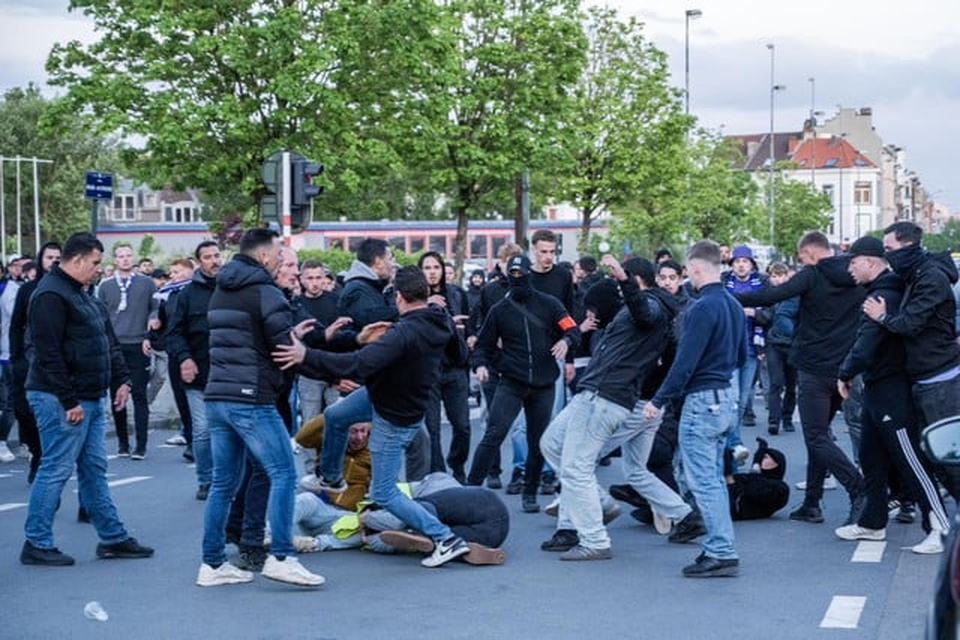Switzerland’s intellectual national defense celebrates a comeback

The intellectual national defense celebrates a comeback – the young generation no longer knows what that is
Switzerland has to fight foreign disinformation, says SVP National Councilor Lukas Reimann. He demands that the Federal Council provide a program to strengthen intellectual defense.
« Foreign disinformation is also increasing in Switzerland and is often shared by social media, » says SVP National Councilor Lukas Reimann. Switzerland therefore needs intellectual national defense again, he emphasizes. « This is intended to strengthen Swiss values such as freedom, independence, democracy, neutrality, human rights and civil rights and generally create a mood per Switzerland. »
Reimann has just submitted a motion in which he demands that the Federal Council had to present a comprehensive program for the strengthening of intellectual national defense to the parliament.
He relies on Austria. The neighboring country is « a positive role model, » says the SVP National Council. «It wrote the comprehensive national defense in Article 9 in the Federal Constitution. The spiritual national defense is a pillar of it. » In addition, intellectual national defense is part of the curriculum in Austria.
In Austria, intellectual state defense supports the mediation of democratic values, awareness of the concept of neutrality, to ensure state sovereignty and for the citizens’ and human rights enshrined in the constitution, Reimann writes on his motion. « This makes an important contribution to understanding national security policy. »
In Switzerland, on the other hand, the army has been neglected for decades, pushed to the edge and reduced to disaster aid, says Reimann. « When I completed the recruit school in the early 2000s, I heard in the cantonal school that the RS was for Loser. »
Reimann wants to change that. Just like Middle National Councilor Reto Nause. « The intellectual national defense is also part of the dissuassion, » says the new President of Allianz Security Switzerland. He addresses disinformation as well as Reimann. « Being defensive is not enough, » says Nause. «We also have to be willing to defend. That is why we have to fight propaganda influences in Switzerland. »
For militia officer Stefan Holenstein, President of the Association of Military Companies Switzerland, dissuination only becomes credible if it is more anchored in the population. « It also needs intellectual national defense – today one would speak more modern about mental upgrade – to the entire Swiss population. »
« But we are still a long way from that, » says Holenstein – and is targeting politics. « Bundesbern gives its greeting with his » carefree policy « . » It is actually difficult to convey the real seriousness of the situation to the population with likely threat scenarios, he admits. «But we have to finally adapt the turning point. She’s already there – irreversible! » As early as 2027 or 2028, Putin could target the Baltic states, believes Töchenstein. « This would result in an expansion of the conflict, which would also affect us. »
The intellectual national defense thus celebrates a comeback in parts of bourgeois politics. The younger generations, in turn, who were born after the fall of the Berlin Wall, usually no longer know what spiritual national defense means.
Public service broadcasting and per Helvetia as consequences
According to the historical lexicon of Switzerland, their roots are in the First World War. It has revealed the total character of modern war and also made defense efforts appear necessary in non -military areas such as economy and culture.
The intellectual national defense is primarily remembered as a political and cultural movement in the Second World War and in the Cold War. It aimed to strengthen values to the goal that was considered Swiss. At the same time, it was a means to ward off the tendencies of fascist, National Socialist and Communist totalitarianisms.
The Expo Lausanne 1964 is a highlight of intellectual state defense. Milic officer Holenstein even refers to it as « Hort of Mental Defense – with the Army Pavilion » Defense Switzerland « , which the population described as » hinge « because of the striking concrete spells.
The intellectual national defense had brought Switzerland the public service broadcasting and the Pro Helvetia Cultural Foundation in the 1930s. Today it is particularly remembered because of the monitoring of oppositional in the Cold War, as part of the so -called “fichen affair”.








